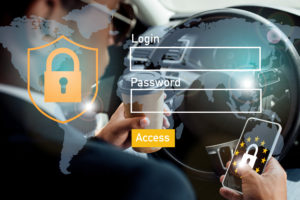Do Your Passwords Pass the Security Test?


Do you worry about someone hacking into your computer and stealing your private information?
Many of us bank, manage credit cards, and report our income taxes online, and use Facebook and other social media websites. All of these types of sites are password protected and that means we’re all aware of the importance of keeping our passwords to ourselves or sharing with others (such as a spouse) in a secure fashion.
- Don’t use real words: Use letters and numbers that have meaning to you, such as a phrase or acronym. For example, you could use an acronym representing something you think about often or were involved with in the past. Then pair this with a number that is associated with that experience, but that others wouldn’t necessarily know.
- Use a special character in place of a letter: Doing this will be relatively easy for to remember. Examples are * $ # ^ & < >. The same special characters can even be used to replace the same letters across all your passwords making it easier to remember. For instance, $ could always replace the letter S.
- Change passwords: Do this at various intervals, such as every six months and change them immediately if there is ANY suspicion that a password has been compromised.
- Never click on a link in an e-mail that will takes you to a website where you key your user name and password: Even if the e-mail is sent by the website and it’s probably a valid link. Always, always, go to the website directly in your browser by typing in the location or using a trusted bookmark. The e-mail could be fraudulent and not really link you to the website you think it will (such as a credit card website), but instead to a “fake” website where a hacker could easily steal your information.
Another key security measure is to store your passwords securely. One technique is to save your passwords in a document that is password protected, such as a Microsoft Word or Excel file. You should also print this document periodically and save it in a secure location in your home away from your computer.
Lawley’s insurance professionals will sit down with you to assess the nature and extent of any cyber liability exposures you face; then we’ll identify the steps you can take, and the proper cybersecurity insurance coverage you may need to protect your business.












